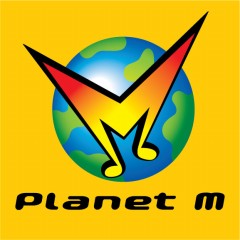This article has multiple issues. Please help improve it or discuss these issues on the talk page . (Learn how and when to remove these messages)
|
 | |
| Headquarters | Mumbai, India |
|---|---|
| Parent | Videocon |
Planet M was an Indian music retail store founded by The Times Group (BCCL). It was sold to Next Retail India Ltd. of Mumbai, the retail arm of Videocon, in November 2007. [1] It was present in many cities (140-plus locations) all over India. These stores were mainly known for selling music and movies and related accessories. They also sold gaming consoles and handhelds like PlayStation Portable, PS2, PS3, Wii and Xbox 360. Planet M was also in the mobile retail business. They offered a wide range of mobile handsets with lucrative schemes.